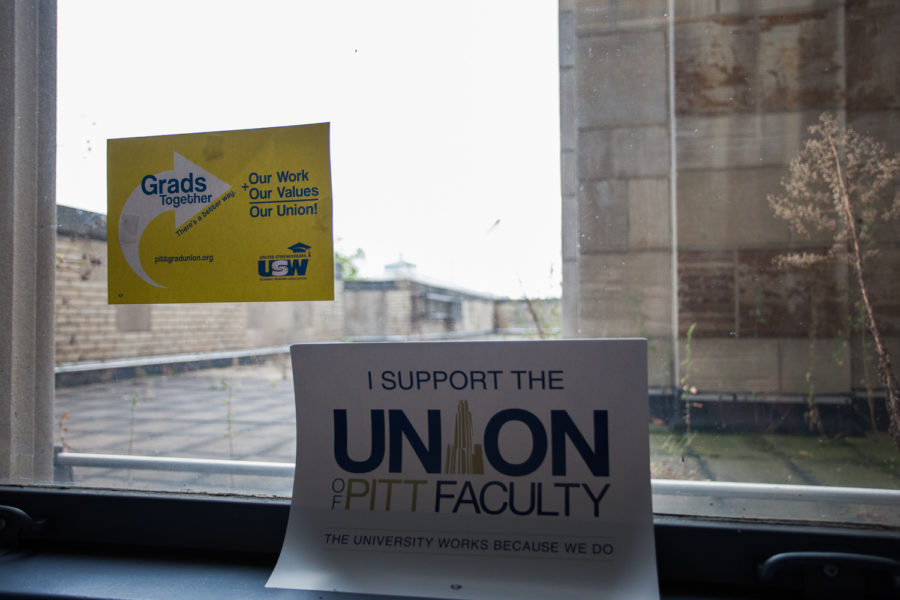Faculty union organizers ‘optimistic’ as election draws to a close
Voting in Pitt’s faculty unionization election closed Tuesday evening. Eligible professors and researchers from all five Pitt campuses cast their vote on whether to unionize or not.
October 12, 2021
More than five years after Pitt faculty began a union-organizing campaign, they will start to find out next week whether they succeeded in bringing a union to campus.
Voting in the faculty unionization election closed Tuesday, as eligible professors and researchers from all five Pitt campuses cast their vote on whether to unionize or not. The Pennsylvania Labor Relations Board mailed out election ballots on Aug. 27 to all faculty members eligible to vote. All ballots had to be received by the PLRB by Tuesday at 5 p.m., with counting scheduled to begin next Tuesday.
The push for unionizing more than 3,000 faculty members at the University began in 2016, when Pitt faculty and employees announced a partnership with United Steelworkers. Steelworkers has assisted other university unionization efforts in the state.
Melinda Ciccocioppo, a psychology lecturer and member of the Pitt Faculty Organizing Committee, said a faculty union will not just benefit Pitt faculty — the effects of a union will filter down to Pitt students.
Ciccocioppo said unionization will help improve working conditions for faculty by giving them a voice in negotiations surrounding “job stability, more predictable course loads and fair compensation.”
“[Faculty negotiating] means that students can count on trusted professors to be there from one semester to the next and to be able to provide them with the support they need in their academic journeys,” Ciccocioppo said.
The PLRB ruled in April 2019 on what groups at Pitt would be eligible to vote in a union election. PLRB ruled that Pitt’s School of Medicine is not eligible to vote in the election on the basis that University policies have always established the School of Medicine as a separate unit from the rest of the school. Pitt originally said the bargaining unit for Pitt faculty in the election should include the School of Medicine, while union organizers argued for its exclusion.
Ciccocioppo said the election has been “powerful” and that she was impressed by the amount of faculty uniting for this cause. Ciccocioppo said she is “optimistic” that the results are in favor of unionization.
“I think the election went really well,” Ciccocioppo said. “Most of the faculty I’ve talked to over the past five years support forming a union with their colleagues.”
Ciccocioppo said support from organizations and local businesses has been instrumental in the unionization efforts. She said these outside influences and pressures played a big role in what she described as Pitt’s decision to stay “fairly neutral.”
“Support has been huge,” Ciccocioppo said. “The resolutions passed by Pitt’s Graduate and Professional Student Government, College of General Studies Student Government, the Student Government Board and other Pitt organizations mean a lot to us and highlight the recognition that ultimately a union of Pitt faculty will benefit our institution as a whole.”
University spokesperson David Seldin said Pitt “does not have a position” on a desired outcome of the election. Seldin said the decision is “for faculty to make.”
Pitt faculty unionization efforts received additional support from the greater Pittsburgh community. State Rep. Dan Frankel, D-23, and Pittsburgh City Controller Michael Lamb, among other elected officials, voiced their support for a Pitt faculty union over Twitter, encouraging eligible voters to vote “yes” for faculty unionization.








